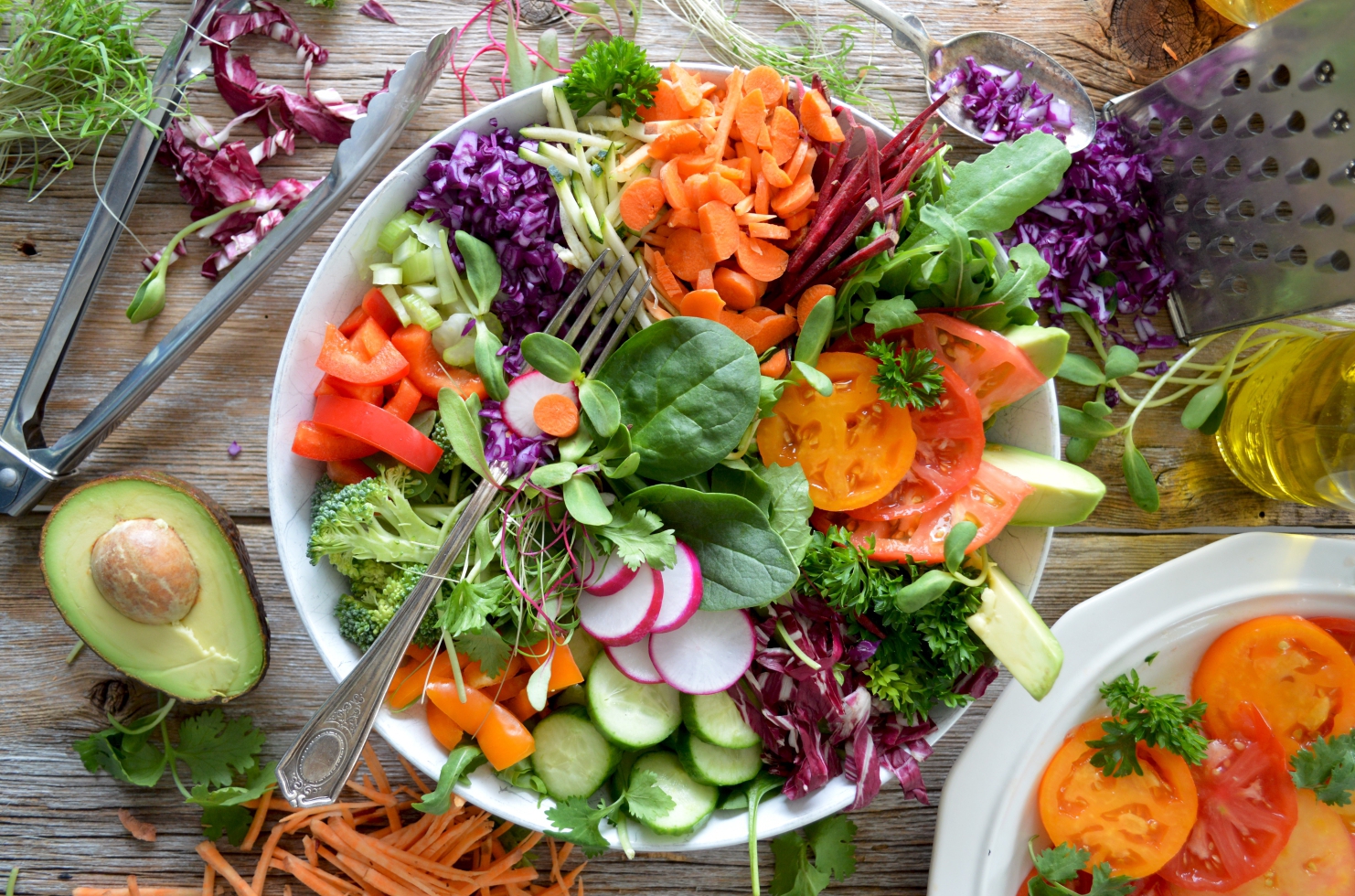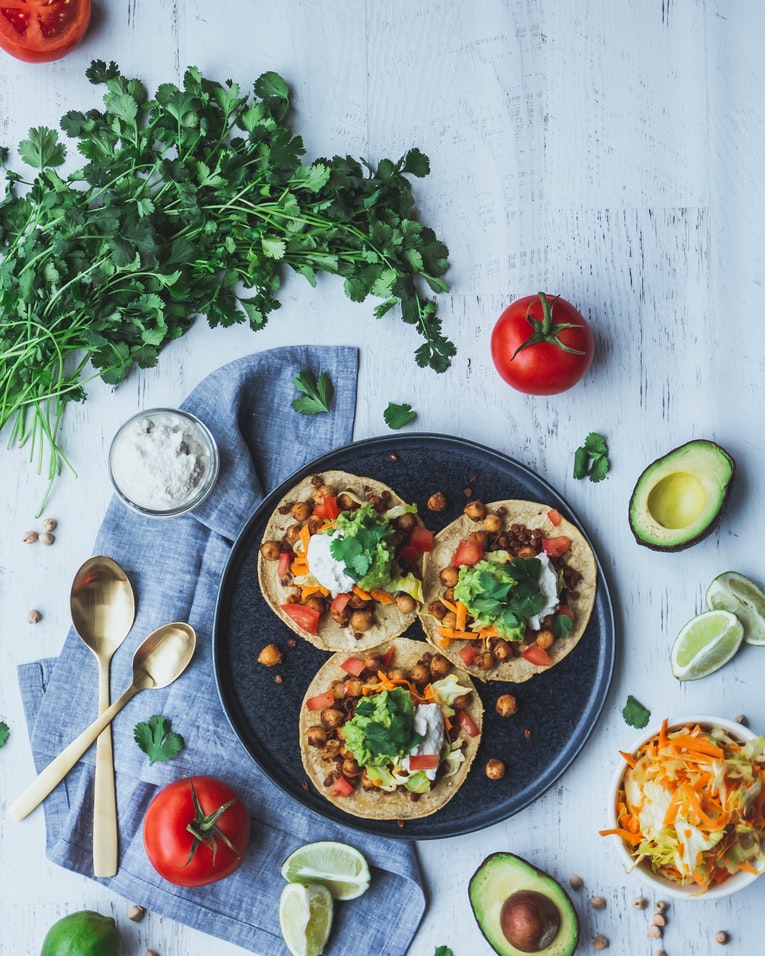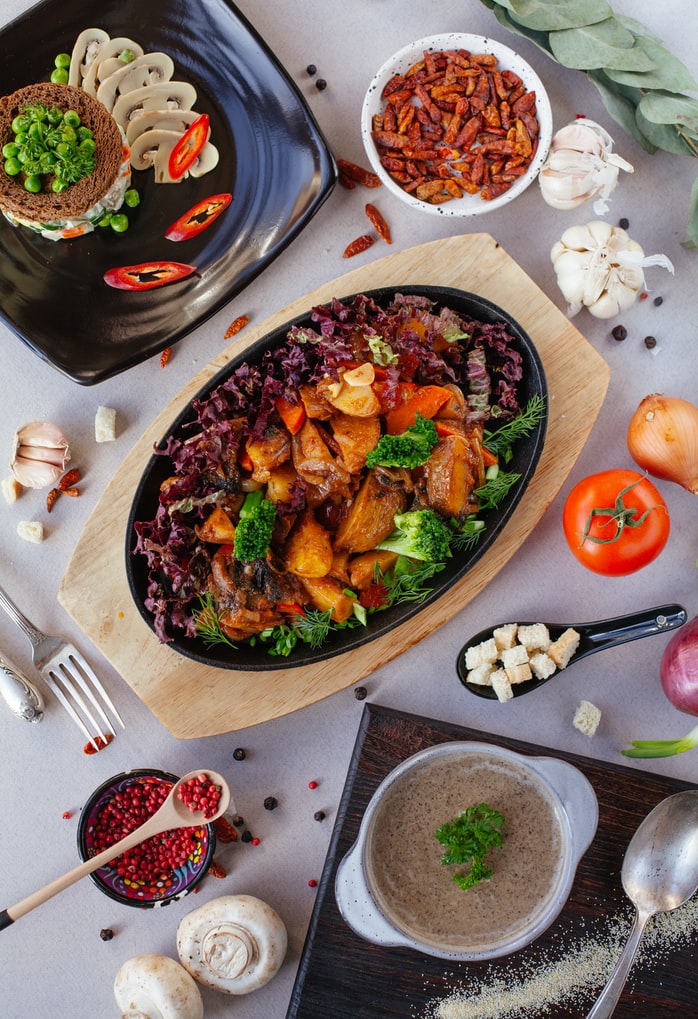
Vegan vs Vegetarian diet- for weight-loss
- December 12, 2021
- by
- Khyra
We spend millions curing diseases, when the prevention of the disease could be as simple as a change of diet plan. However, there are numerous diets out there that promise to get you back in shape, but not all of them can do so without compromising your health. Some people consider vegan and vegetarian diets to be the healthiest and the most effective ones. But by comparison, which is better? What is the difference between vegan vs vegetarian diets? Read on to find out more about these two popular nutrition plans.
Vegan Diet
The Vegan Society defines veganism as a nutritional philosophy and a lifestyle that completely bans the consumption of any animal products with the aim of reducing the levels of all forms of exploitation of and cruelty towards animals. It encourages the use of animal-free alternatives for the sake of animal and environmental wellness. In terms of food consumption, you are required to exclude all types of foods, fully or partially derived from animals, including meat, dairy, eggs, and even honey.
There are different types of vegan diets, such as raw-food veganism, which is based on the consumption of raw vegetables, fruits, nuts, seeds, and other plant-based foods. There is also a whole-food type of vegan diet, which requires the consumption of whole plant foods including vegetables, fruits, whole grains, legumes, nuts, and seeds.
Vegetarian Diet
Vegetarianism is a diet free of meat, fish, and fowl flesh. But like with veganism, there are different types of a vegetarian diet. Here are some of the most popular types of this nutritional plan:
Lacto-vegetarian diet allows you to consume dairy but bans meat, fish, and eggs.
The ovo-vegetarian diet limits the intake of meat, fish, and dairy but allows you to eat eggs.
Lacto-ovo vegetarian diet requires you to avoid meat and fish but allows eggs and dairy.
Pescatarian Diet: People who follow a pescatarian diet can eat fish, seafood, dairy and eggs but are not allowed meat.
The Fruitarian diet is based on fruits, nuts, seeds, and other plant food.
A flexitarian diet mostly follows the rules of a basic vegetarian diet but allows occasional consumption of moderate amounts of meat and fish.
How To Follow Vegan Or Vegetarian Diet?
Both vegetarian and vegan diets require thorough planning. In order to obtain all the necessary nutrients from your diet, ensure that your meal plan includes a great variety of foods that your diet allows. You should also limit your consumption of such unhealthy foods as saturated and trans fats, sugary foods and beverages, and refined grains.
If you have already decided to start a vegan or vegetarian diet, make sure that you integrate slowly. The period of transition from your regular diet to vegan or vegetarian can take from a couple of weeks to a couple of months. To make a transition more gradual start by replacing some of the animal-source ingredients in your meals with plant-based foods. Slowly increase the number of plant-based ingredients in your menu, eventually substituting all the restricted foods with the allowed products.
Although vegan and vegetarian diets are quite similar, and the vegan diet is often considered a type of a vegetarian diet, these two nutritional plans differ when it comes to weight loss.
Vegetarian Diet Weight Loss- what science says!
A 2015 study on the high vegetable fats intake associated with high resting energy expenditure (REE) in vegetarians implies that a vegetarian diet high in vegetal fats may even boost metabolism. This means that Vegetarians and Vegans might burn more calories while at rest, making their weight loss efforts more effective. However, prospective studies are needed to recommend this type of dietary intervention in the general population.
The results of a 2015 study of comparative effectiveness of plant-based diets for weight loss showed that vegan participants significantly decreased their levels of total fat and saturated fat, more than the pescatarian, flexitarian, and omnivorous groups at both 2 and 6 months. Research has also found that people who follow a vegan diet tend to have a lower body mass index (BMI).
A two-year randomized weight-loss trial comparing a vegan diet to a more moderate low-fat diet suggests that sticking to a vegan meal plan is more effective at weight loss than the diets to which it is compared.
Another 2015 study on the dietary adherence and acceptability of five different diets, including vegan and vegetarian diets, for weight loss, implies that because the rates of acceptability and adherence among the diet groups are the same, following a vegan or vegetarian diet may lead to better weight loss results even among non-adherent participants.
Besides that, those who follow a vegan diet tend to have a lower body mass index (BMI) than vegetarians and seem to gain less weight as they age. A study suggests that following a vegetarian diet may offer such benefits as reduced risk of cardiometabolic outcomes and some cancers, as based on the results of participants of the study. A no-meat diet and reduced intake of eggs and dairy products may offer an additional benefit, in the form of a reduced risk of obesity.
Another cross-sectional study implies that people who stick to a vegan diet overall have a lower BMI than vegetarians or those who follow a regular diet. This may possibly be explained by the fact that compared to other groups, Vegans tend to have a lower daily calorie intake.
IN ESSENCE, WHICH IS BETTER?
A good option is to try out some of the most popular weight-loss nutritional plans that have been previously tested and have scientific evidence to back up their results. It’s hard to say which one is safer between Vegan and Vegetarian diet, since they both have their benefits and drawbacks. But in terms of effectiveness in weight-loss, people who follow a vegan diet seem to have better results than those who stick to vegetarianism. However, shifting to a vegan or vegetarian diet will not make a person healthy overnight. To notice any improvements in health, it is essential to plan your meals properly, include a variety of food to avoid any nutritional imbalances. Both of these diets require a lot of planning and attention to the nutritional value of your meals. Ensure you consult a dietitian before switching over to a new diet.









